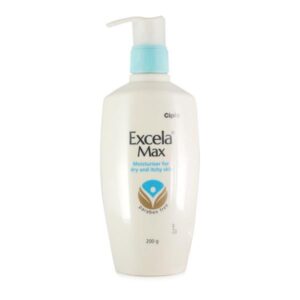VITAMIN B3 (NIACINAMIDE) + PURIFIED SURFACE ANTIGEN + PHOSPHINIC ACID
Vitamin B3 (niacinamide): Vitamin B3, also known as niacinamide, is a water-soluble vitamin that is part of the B-complex group of vitamins. It is a form of niacin (vitamin B3) that does not cause the characteristic flushing associated with niacin.
Use:
Niacinamide is used to treat and prevent vitamin B3 deficiency. It is also used as a dietary supplement for its potential health benefits, such as supporting skin health, improving joint mobility, and enhancing brain function. Additionally, it is used in the treatment of certain skin conditions like acne and rosacea.
Mechanism of Action:
Niacinamide plays a crucial role in the metabolism of carbohydrates, fats, and proteins, and it helps to convert food into energy. As a component of coenzymes NAD (nicotinamide adenine dinucleotide) and NADP (nicotinamide adenine dinucleotide phosphate), it acts as a cofactor in various cellular reactions, including cellular respiration and DNA repair. Niacinamide is also known for its antioxidant properties, helping to protect cells from damage caused by free radicals.
Dose:
The appropriate dosage of niacinamide varies depending on the individual and the condition being treated. For vitamin B3 deficiency, the recommended daily intake for adults is typically around 14-16 mg. However, higher doses of niacinamide are often used when treating specific conditions, such as acne or arthritis. It is important to follow the instructions of a healthcare professional or adhere to the recommended dosage on the supplement label.
Side Effects:
Niacinamide is generally considered safe when taken at recommended doses. However, high doses may lead to side effects such as stomach upset, nausea, diarrhea, or flushing of the skin. It is important to note that niacinamide is generally better tolerated compared to niacin, which is known to cause flushing and other adverse effects at higher doses.
In rare cases, very high doses of niacinamide may lead to liver toxicity. Individuals with liver disease should exercise caution and consult a healthcare professional before taking high doses of niacinamide. It is always advisable to speak to a healthcare provider before starting any new supplement or medication to ensure it is appropriate for your individual needs and medical history.
Purified Surface Antigen: Purified Surface Antigen, also known as PSA, is a drug primarily used for the diagnosis and monitoring of prostate cancer. PSA is a protein produced by the cells of the prostate gland and is normally found in small amounts in the blood. Prostate cancer causes an increase in PSA levels in the blood, making it a useful biomarker for the disease.
The mechanism of action of PSA is that it binds to specific antibodies in the blood, which allows for its detection in diagnostic tests. The drug is typically administered through a blood test, where the levels of PSA in the blood are measured.
The dose of PSA varies depending on the specific test being performed and the laboratory protocols. It is important to follow the instructions provided by the healthcare professional or laboratory conducting the test.
As PSA is primarily used as a diagnostic tool, it is generally considered to have minimal side effects. However, in some cases, there may be discomfort or bruising at the site of the blood draw. Rarely, allergic reactions to the components of the test may occur. It is important to inform the healthcare provider if any adverse reactions are experienced.
It is worth noting that PSA alone cannot definitively diagnose prostate cancer. Additional tests, such as a biopsy, may be necessary to confirm the presence of cancer. Regular monitoring of PSA levels can help track the progression of the disease and the effectiveness of treatment.
Overall, Purified Surface Antigen (PSA) is a valuable tool in the diagnosis and monitoring of prostate cancer through its measurement in blood tests.
Phosphinic Acid: Phosphinic acid is a compound that belongs to the class of organophosphorus compounds. It is primarily used as a precursor in the synthesis of various organic compounds and catalysts. Phosphinic acid has no approved therapeutic use in humans and is not prescribed as a medication.
The mechanism of action of phosphinic acid is not well-studied since it is mainly used as a chemical intermediate rather than a drug. However, it is known to act as a phosphinate group donor in chemical reactions, participating in various organic syntheses.
Since phosphinic acid is not typically used in therapeutic dosages for human consumption, there is no standard recommended dose. However, it is commonly used in research and industrial settings where precise quantities are determined based on the specific application.
As phosphinic acid is not intended for human use, there is limited information available on its side effects in this context. However, when handling phosphinic acid in a laboratory or industrial setting, it is essential to follow proper safety protocols. Direct contact with the skin, eyes, or inhalation of the compound may cause irritation, burns, or respiratory distress. Accidental ingestion may lead to gastrointestinal discomfort and potential toxicity.
It is crucial to handle phosphinic acid with caution and seek immediate medical attention if accidental exposure occurs.

